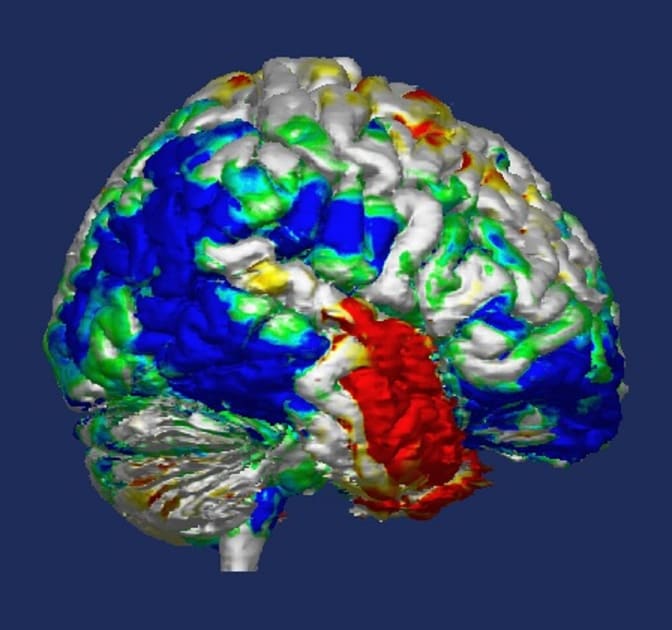
Yale researchers have recently made significant advances in treating epilepsy when symptoms are not alleviated by antiseizure medication. From groundbreaking neurosurgical techniques to utilizing an implantable, personalized, deep brain stimulation device, these developments offer hope to the one third of patients suffering from drug-resistant epilepsy. Many people with epilepsy lose consciousness during seizures with risk of injuries or social harm, especially in a condition known as temporal lobe epilepsy (TLE).
Beginning in September 2021, Yale will lead a new study with an experimental implanted brain stimulator to improve consciousness during seizures. The randomized controlled study is funded by a NIH Brain Initiative grant and will observe TLE patients over three years. Hal Blumenfeld, MD, PhD will serve as principal investigator and conduct the study across two additional clinical sites: Mayo Clinic and Dartmouth-Hitchcock Health. Dr. Blumenfeld’s groundbreaking work on impaired consciousness in epilepsy lays the foundation for the trial.
TLE is characterized by “blank out” periods, seizure episodes that prevent conscious awareness. Patients report uncontrolled movements, blank staring, and loss of awareness. The goal of the upcoming study is to restore arousal or behavioral awareness in TLE patients when they lose consciousness and to ultimately improve their safety and quality of life.
“It is really important that we push the therapeutic options for patients with epilepsy as far as we can,” said Barbara Jobst, MD, site leader at Dartmouth-Hitchcock Health. “This new trial testing brain stimulation that addresses the loss of consciousness during seizures will propel us forward in our understanding and treatment of epilepsy.”
Nicholas Schiff, MD at Weill Cornell applied the same approach to restore consciousness in patients with traumatic brain injury.
“This is a very exciting and novel application of the use of central lateral thalamic brain stimulation to improve arousal regulation,” he said. “It opens up an entirely new set of possible applications and hopefully therapeutic avenues for patients with epilepsy.”
Gregory Worrell, MD, PhD will serve as site leader at Mayo Clinic, and his team has developed cutting-edge technology for the trial. Study participants who are confirmed to experience two or more “blank out” episodes per month will be implanted with the neurostimulator device. Developed in collaboration with biotechnology company Medtronic, the device will work by way of four leads: two connecting to the hippocampus, and two connecting to the thalamus. Hippocampal leads are commercially available and have been shown to reduce seizure frequency and severity. With the TLE patient population, however, these leads are not 100% effective in stopping seizures and side effects of seizure events. Thalamic leads, on the other hand, have been shown to restore consciousness and awareness in disorders of consciousness. Combining the two types of leads in the novel device will help researchers to restore consciousness with the thalamic leads when seizures are not stopped by the hippocampal leads.
Another benefit of the device is its ability to provide continuous feedback while the patient is being studied. As the device generates electrical impulses, it records continuous EEG, transmitting data to an EPAD (epilepsy personal assistant device). The continuous, personalized data feedback will allow researchers to customize therapy to each individual patient and monitor variations in “blank out” episodes.
While the novel device has potential in treating TLE, there are possible challenges to the study. Recruitment could last up to one year, given the possible difficulty in identifying patients who meet the study’s qualifications and who experience TLE-specific seizures. Furthermore, the device and the accompanying EPAD will require charging, and the side effects of this novel implant are unknown. Despite these factors, researchers are hopeful that the results of this study will yield an effective, much-needed therapy to a patient population in need of answers.
"device" - Google News
June 22, 2021 at 04:07AM
https://ift.tt/3xCJKJy
A Novel Device to Restore Consciousness During Seizures - Yale School of Medicine
"device" - Google News
https://ift.tt/2KSbrrl
https://ift.tt/2YsSbsy
Bagikan Berita Ini














0 Response to "A Novel Device to Restore Consciousness During Seizures - Yale School of Medicine"
Post a Comment